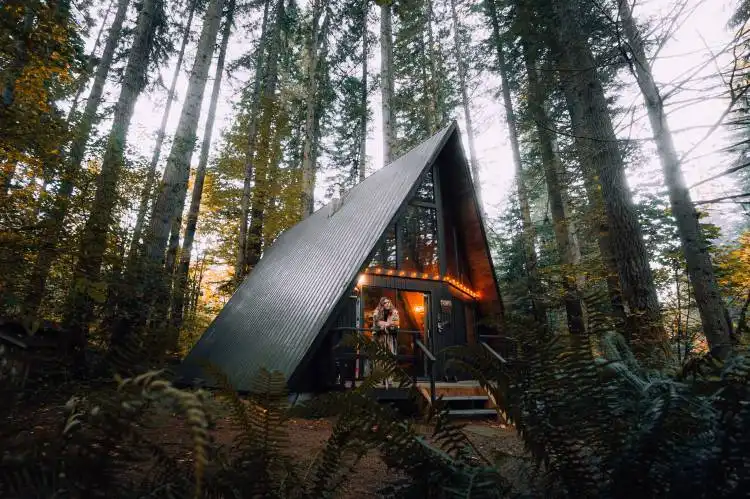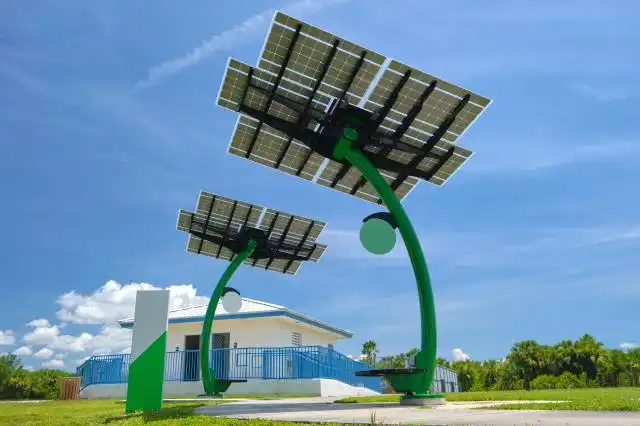Start a Home Rental Business
Navigating Through The Exciting Waves of The Home Rental Business
| Updated


HOME RENTAL BUSINESS
Welcome to the lucrative world of the home rental business, fellow entrepreneur! This venture is all about buying or owning residential properties, only to lease them out to tenants for a specified term. Think of yourself as a social sailor, navigating the property waves, connecting people to their dream dwellings while simultaneously filling up your treasure chest! It's about juggling guests, payment schedules, and property maintenance but the thrill of being at the helm could make this the perfect business voyage for you.
Jump to Business Plan
RELATED BUSINESS IDEAS
Browse ALL Rental & Delivery Services Business Ideas
Discover Your Perfect Domain
Unlock the door to your online success with our hand-picked selection of premium domain names. Whether you're starting a new venture or rebranding an existing one, the right domain can set the tone for your digital presence. Browse through our curated list, each with its unique potential to enhance your brand's visibility and credibility.
HOME RENTAL MINI BUSINESS PLAN
This a quick reality check to help you identify the strengths and weaknesses of your business concept before you dive in.
Business Idea: Home Rental Business
Expected Percent Margin:
- Gross Margin: 60-70%
- Net Profit Margin: 30-40%
Earnings Expectations:
Daily Earnings:
- Depending on the location and the size of the home, daily earnings from a rental property can range from $50 to $200 per day.
Weekly Earnings:
- Applying the daily earnings rate, weekly earnings range from $350 to $1,400.
Monthly Earnings:
- Expanding the weekly average to a month, earnings can be within the range of $1,400 to $6,000.
Annual Earnings:
- Based on the monthly rate, the annual earnings from a home rental business can run from $16,800 to $72,000.
Actions to Hit Those Numbers:
Investment and Maintenance:
- Property Acquisition: Choose properties in high-demand areas to ensure consistent occupancy.
- Home Maintenance: Regular maintenance tasks should be performed to prevent major repair expenses.
Marketing and Customer Acquisition:
- Online Listings: List your properties on popular website to attract potential tenants.
- Professional Photography: Invest in high-quality photos of your rental properties to enhance listings.
Tenant Relations:
- Good Tenant Selection: Conduct thorough tenant screening to minimise potential issues.
- Prompt Response: Show potential tenants that you are responsive and available by handling inquiries and issues in a timely manner.
Legalities:
- Legal Compliance: Ensure you're following state and local laws when it comes to rental rates, lease agreements and eviction procedures.
Please note: These are estimated values which can vary based on location, property type, and marketing strategies. Always seek out expert financial advice when starting a business.
NOT WHAT YOU HAD IN MIND? Here are more ideas



Browse ALL Rental & Delivery Services Business Ideas
Grab Your Business Website Name
Before you get caught up in the whirlwind of setting up your business, invest in a domain name. It's a small but significant step that lays the foundation for your brand and makes it easier for customers to find and trust you. Just like you wouldn't build a house without securing the land first, don't build a business without securing your domain name.
"Why? Can't that wait?" Here's why it shouldn't
Step 1: Determine if Home Rental Business is Right Endeavor
Breakdown of Startup Expenses
Before starting a home rental business, it is important to understand the startup costs associated with the venture. These expenses may include the cost of purchasing or leasing a property, the cost of renovations, the cost of furniture and appliances, and the cost of marketing and advertising. It is also important to consider the cost of insurance, taxes, and other fees associated with running a business. Additionally, it is important to consider the cost of hiring a lawyer or accountant to help with the business setup.
Breakdown of Ongoing Expenses
Once the business is up and running, there are several ongoing expenses that must be taken into account. These expenses may include the cost of utilities, the cost of maintenance and repairs, the cost of insurance, and the cost of marketing and advertising. Additionally, it is important to consider the cost of hiring staff to manage the property and the cost of taxes associated with running a business.
Examples of Ways to Make Money
There are several ways to make money from a home rental business. The most common way is to rent out the property on a short-term basis, such as through Airbnb or other vacation rental sites. Additionally, the property can be rented out on a long-term basis, such as through a traditional lease. Another option is to rent out the property on a nightly or weekly basis. Finally, the property can be used as a venue for events, such as weddings or corporate retreats.
Step 2: Name the Business
Brainstorm a list of potential names When brainstorming potential names for your home rental business, it’s important to consider the type of business you’re running. For example, if you’re renting out vacation homes, you may want to consider a name that reflects the area or the type of vacation experience you’re offering. Additionally, you should consider the target audience you’re trying to reach. If you’re targeting a younger demographic, you may want to consider a more modern name. If you’re targeting an older demographic, you may want to consider a more traditional name.
Consider a domain name When selecting a name for your business, it’s important to consider the availability of a domain name. A domain name is the web address that customers can use to find your website. If the name you’ve chosen is not available as a domain name, you may want to consider a different name. Additionally, you should consider the cost of the domain name. Some domain names can be expensive, so you should make sure you’re comfortable with the cost before you commit to a name.
Research the competition Before you settle on a name for your business, it’s important to research the competition. You want to make sure that the name you’ve chosen is not already being used by a competitor. Additionally, you should research the names of other businesses in the same industry. This will help you to ensure that your name is unique and memorable.
Check for trademark infringement Before you settle on a name for your business, it’s important to check for trademark infringement. You want to make sure that the name you’ve chosen is not already trademarked by another company. If the name you’ve chosen is trademarked, you may need to choose a different name or risk legal action.
Get feedback Once you’ve narrowed down your list of potential names, it’s important to get feedback from friends, family, and other business owners. Ask them for their honest opinion on the names you’ve chosen. This will help you to make sure that the name you’ve chosen is the right one for your business.
Step 3: Obtain Necessary Licenses and Permits
Before you can start a home rental business, you must obtain the necessary licenses and permits. Depending on the state or locality you are operating in, you may need to obtain a business license, a rental license, a zoning permit, and a tax identification number. It is important to research the specific requirements for your area and apply for the necessary licenses and permits.
How to Apply for Licenses and Permits
To apply for the necessary licenses and permits, you will need to contact your local government office. You may need to provide proof of identity, proof of residence, and proof of business ownership. You may also need to provide a business plan and a list of the services you will be offering. Once you have submitted all the required documents, you will need to pay the applicable fees and wait for your application to be processed.
Cost of Obtaining Licenses and Permits
The cost of obtaining licenses and permits will vary depending on the state or locality you are operating in. Generally, you can expect to pay anywhere from a few hundred dollars to a few thousand dollars. It is important to factor in the cost of obtaining licenses and permits when calculating the startup costs for your home rental business.
Benefits of Obtaining Licenses and Permits
Obtaining the necessary licenses and permits is important for any business, but it is especially important for a home rental business. Having the necessary licenses and permits will ensure that your business is legally compliant and that you are not violating any local laws or regulations. Additionally, having the necessary licenses and permits will give your business credibility and make it easier for you to attract customers.
Step 4: Find a Suitable Location
- Consider the local market and the demand for rental properties in the area.
- Research the local zoning laws and regulations to ensure the business is compliant.
- Look for a location that is close to amenities such as shops, restaurants, and public transportation.
- Consider the safety of the area and the potential for crime.
- Analyze the local competition and determine how to differentiate the business.
When it comes to finding a suitable location for a home rental business, there are several factors to consider. First, it is important to research the local market and the demand for rental properties in the area. This will help to ensure that the business is able to generate enough income to cover the costs of running the business. Additionally, it is important to research the local zoning laws and regulations to ensure the business is compliant. This will help to avoid any legal issues that could arise in the future.
Next, it is important to look for a location that is close to amenities such as shops, restaurants, and public transportation. This will make the property more desirable to potential tenants and will help to increase the rental income. It is also important to consider the safety of the area and the potential for crime. This will help to ensure that the property is secure and that tenants feel safe living in the area.
Finally, it is important to analyze the local competition and determine how to differentiate the business. This could include offering more amenities, lower rental rates, or better customer service. By understanding the competition, the business can create a unique offering that will help to attract more tenants and increase the rental income.
Step 5: Acquire Necessary Equipment and Supplies
When starting a home rental business, it is important to acquire the necessary equipment and supplies to make the business successful. This includes items such as furniture, appliances, bedding, and other items that will make the rental space attractive to potential renters. Depending on the type of rental business, additional items may be needed, such as cleaning supplies, a vacuum cleaner, and other items. Additionally, it is important to have a reliable internet connection and other technology that will be necessary for the business. It is also important to have a good quality security system in place to protect the rental property.
Where to Purchase Necessary Equipment and Supplies
When it comes to purchasing the necessary equipment and supplies for a home rental business, there are several options. One option is to purchase items from a local store or online. This can be a great way to get quality items at a reasonable price. Another option is to purchase used items from a second-hand store or online. This can be a great way to save money while still getting quality items. Additionally, it is possible to rent items from a rental company or even borrow items from friends and family.
Cost of Necessary Equipment and Supplies
The cost of the necessary equipment and supplies for a home rental business can vary greatly depending on the type of rental business and the items that are needed. It is important to do research and compare prices to ensure that the items are purchased at the best price. Additionally, it is important to factor in the cost of any repairs or maintenance that may be needed for the items. It is also important to factor in the cost of any insurance that may be needed to protect the rental property.
Step 6: Market the Business
When it comes to marketing and promoting your home rental business, there are a few key strategies you should consider. First, you should create a website for your business that includes information about the rental properties, pricing, and contact information. You should also create a presence on social media platforms like Facebook and Instagram to reach potential customers. Additionally, you should consider creating a blog to share helpful content related to your business and the rental industry. You can also use email marketing to reach potential customers. Finally, you should consider traditional advertising methods like print ads, radio ads, and television commercials.
Networking and Building Relationships
Networking and building relationships is also an important part of marketing your home rental business. You should attend local events and join local organizations to meet potential customers and other industry professionals. Additionally, you should consider joining online communities related to the rental industry to network with other professionals. You should also consider forming partnerships with other businesses in the area to cross-promote each other’s services. Finally, you should consider offering discounts and promotions to potential customers to help attract new business.
Step 7: Set Up a Payment System
Setting up a payment system for your home rental business is essential for collecting rent and other fees from tenants. There are several options for accepting payments, including cash, check, and credit cards. Cash is the most straightforward option, but it can be difficult to track and manage. Checks are a reliable form of payment, but they can take a few days to clear. Credit cards are the most convenient option, but they come with processing fees.
Setting Up a Payment System
Once you decide which payment options you want to accept, you'll need to set up a payment system. If you're accepting cash or checks, you'll need to set up a secure system for collecting and tracking payments. If you're accepting credit cards, you'll need to set up a merchant account with a payment processor. You'll also need to make sure your website is secure and compliant with payment processing regulations.
Establishing Policies and Procedures
It's important to establish policies and procedures for collecting payments from tenants. This includes setting up a payment schedule, outlining late fees and other penalties, and establishing a system for tracking payments. You should also make sure your policies and procedures comply with local, state, and federal laws.
Security and Fraud Prevention
Finally, it's important to take steps to protect your business from fraud and other security risks. This includes setting up fraud prevention measures, such as verifying the identity of tenants and using secure payment processing systems. You should also make sure your payment system is compliant with data security regulations.
Step 8: Establish Policies and Procedures
Once you have determined the type of rental business you want to run, it is important to establish policies and procedures. This will help ensure that your business runs smoothly and that you are able to provide a quality service to your customers. Policies and procedures should include guidelines for rental agreements, payment terms, deposits, cleaning and maintenance, and any other rules or regulations that you may want to enforce.
Rental Agreements
Rental agreements should be clear and concise, and should include all relevant information such as the rental rate, the length of the rental period, the terms of payment, and any other rules or regulations that you may want to enforce. It is also important to include a clause that outlines the consequences for any violations of the agreement. This will help ensure that your customers are aware of the rules and regulations that they must abide by.
Payment Terms
Payment terms should also be clearly outlined in the rental agreement. This should include the amount of the deposit, the payment schedule, and any late fees or penalties that may be imposed for late payments. It is also important to include a clause that outlines the consequences for any violations of the payment terms.
Deposits
Deposits are an important part of the rental agreement and should be clearly outlined in the agreement. Generally, the deposit should be equal to one month's rent and should be refundable at the end of the rental period. It is also important to include a clause that outlines the consequences for any violations of the deposit terms.
Cleaning and Maintenance
Cleaning and maintenance should also be outlined in the rental agreement. This should include the frequency of cleaning and maintenance, as well as any additional fees that may be charged for cleaning or maintenance services. It is also important to include a clause that outlines the consequences for any violations of the cleaning and maintenance terms.
Other Rules and Regulations
Finally, it is important to include any other rules or regulations that you may want to enforce. This could include rules about pets, noise, smoking, or any other restrictions that you may want to impose. It is important to ensure that all of these rules and regulations are clearly outlined in the rental agreement so that your customers are aware of them.
Step 9: Hire Employees
Determine the type of employees you need When starting a home rental business, it is important to determine what type of employees you need. This could include a property manager, a maintenance team, a cleaning crew, and administrative staff. Depending on the size of your business, you may need to hire a full-time or part-time staff.
Create job descriptions Once you have determined the type of employees you need, it is important to create job descriptions for each position. This will help you to determine the qualifications and experience required for each position. It will also help you to identify the duties and responsibilities of each employee.
Post job openings Once you have created job descriptions, you should post the job openings on job boards and other websites. This will help you to reach a larger pool of potential employees.
Conduct interviews Once you have received applications, you should conduct interviews with the most qualified candidates. This will help you to determine if they are the right fit for your business. During the interview, you should ask questions about their experience and qualifications, as well as their availability and willingness to work.
Make an offer Once you have identified the best candidate for the job, you should make an offer. This should include a salary, benefits, and any other perks that may be offered. Once the offer has been accepted, you should provide the employee with the necessary paperwork to complete.
EXPLORE MORE CATEGORIES
Browse ALL Business Idea Categories
TAKE THE NEXT STEPS









